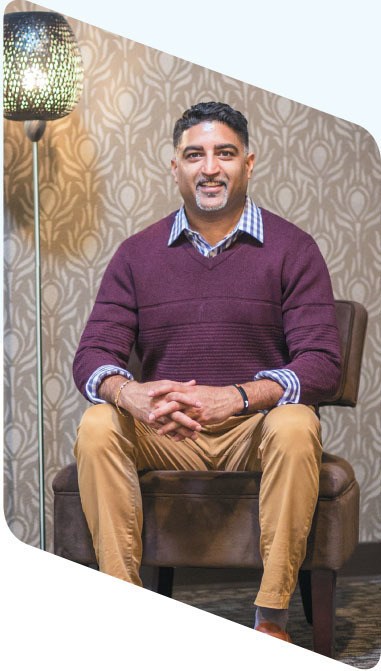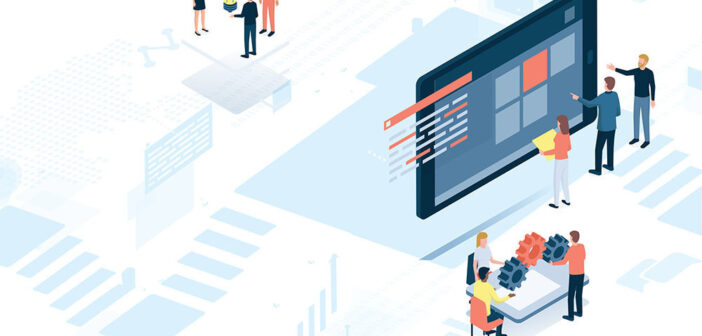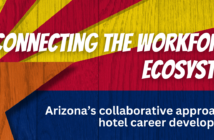While sorting through the effects of the pandemic, hoteliers look to the future
The recent pandemic offered lessons aplenty for hoteliers. But there is one that many in the industry may consider one of the most important, rising above things like streamlining check-in procedures, scaling back housekeeping, or getting creative when considering new amenities.
“We realized our employees are our No. 1 asset,” said Kirk Pederson, president of Sightline Hospitality. “And we have to take care of them first. That’s it. End of discussion. Bottom line.”
Dealing with uncertainty, anxiety, restrictions, constant changes, and stressed-out guests, hotel employees have gone above and beyond. And Pederson, for one, saw them come through with creativity, availability, and flexibility. At one point, for example, he stayed in a San Francisco property and was in the only occupied room. Running on limited staff, the general manager was the one working the graveyard shift at the front desk.
“And if I had a problem in the middle of the night, it was waking him up in his room close to the desk,” he said. “These managers were literally putting their personal cell phones as the forward number for any call that was coming into the hotel, and they were available 24 hours a day. That’s not easy. But they did it all with smiles on their faces and tried to continue to find ways to make guests happy. It’s who we are as hoteliers. But I was amazed by our teams and how they didn’t complain. They just did it.”
Human resources, led by Sightline SVP Sonya Jauregui, was laser-focused on communicating clearly with employees, he said, as well as connecting workers with counseling, helping them find day care for children, allowing those who could work remotely to do so, and assisting in filing unemployment as needed. And when vaccines were available, employees were given paid time off to receive one if they chose to. The result? “We do have a large number of employees who stuck with us through the whole thing who now are back to work and doing well,” he said. “The hotels are doing well. It almost feels like pre-COVID times.”
Almost.
The learning curve that came part and parcel with COVID-19 has been steep, and some things may never be the same. Especially when it comes to consumer expectations.
Especially when it comes to consumer expectations. “Every individual reacted in their own way,” Pederson said. “We operate in an environment where our job is to figure out what the consumer wants and to deliver on that experience. During a pandemic, it’s very difficult to determine what the consumer wants and deliver what they expect.”
The company’s resorts and drive-to destinations in many cases did “better than in the previous year,” he said. North Fork, Long Island, was full of people escaping the city, for example. But downtown urban locations had a completely different experience, with guests few and far between.
Looking ahead with newfound wisdom, then, means a little bit of looking back.

IDEAS CAN CHANGE THE WORLD
Vipul Dayal, president & CEO of VNR Management, was one who looked for, and found, creative opportunities during the pandemic. One of his family’s independent properties provided complimentary rooms to first responders such as 911 dispatchers, police officers, and ambulance drivers so they wouldn’t have to put their own loved ones at risk of exposure. At one point, there were more first responders in the hotel than other paying guests, he said. “We did it for the city,” he said. “We want to be part of the community.” That property, Hotel 1550 in San Bruno, CA, earned the California Hotel & Lodging Association’s 2020 Community Service Award. Dayal is also a past winner of the AAHOA Outreach Award for Philanthropy.
Pederson, meanwhile, said a film crew shooting a movie in the wine country of California took over two properties in Calistoga, with the crew using rooms like apartments. There were also many instances, especially later in 2020, when guests worked from the hotel properties while traveling with others.
Overall, Pederson said, the pandemic required his company to think about the business in a new way.
“Diversification in demand generators has been a huge lesson learned,” he said. “If you have historically relied on the top-15 producing corporate accounts in the market to fill your hotel, you don’t do that anymore.”
Instead, Pederson said, it’s about layering in group business, incentive business, and other opportunities in different ways. “I think companies in these different sources of business realize they probably want to diversify a little bit more, as well,” he added. “Taking advantage of that and forming relationships with a number of different demand generators has become critical.”

CARPE DIEM
Dayal said he found significant guidance and encouragement through organizations such as AAHOA and California Hotel & Lodging Association. He also was thankful for the ability to find grants and other financial assistance. Dayal believes not only in SMART goals (specific, measurable, attainable, relevant, and time-based), but also SMARTER. That extra “ER,” he said, stands for evaluate and revise, and there was plenty of opportunity to use that in recent months in his budget.
“Looking back, I should have saved a lot more than I did and factored that into the budget,” Dayal said. “Usually, we do about 3% in capital reserves, where we save 3% of top-line revenue for capital improvements. Next year, I’m going to bump that up to 5%, just in case.
” Dayal is hopeful for more industry-specific assistance from the federal government, as well as guidance and regulations related to municipalities purchasing hotels to house those experiencing homelessness.
O CAPTAIN, MY CAPTAIN
Dayal, whose family owns and operates numerous franchise and independent properties across Texas, Louisiana, and California, found more flexibility in the unbranded properties, ranging from breakfast requirements to employee furloughs. “It was easier for independents to make decisions,” he said.
Dayal and his wife personally manage one property, and in the early days of the pandemic, they met virtually with furloughed staff every week and offered grocery gift cards to help them get through.
In Pederson’s view, brands have become more flexible, especially when compared with previous events like 9/11. He felt brands did whatever they could to help owners and operators. He also believes those on the independent side “have learned to come together to negotiate on behalf of all hotels, which also has been great in a time like this.”
GATHER YE ROSEBUDS WHILE YE MAY
“I don’t think we’ll ever run food and beverage facilities the way we did in the past,” Pederson said. Consumers are enjoying being able to pull up menus on their individual devices, as well as placing orders and paying on their own timeframe. Automated check-in is also here to stay, the hoteliers believe, though there’s some curiosity why guests don’t yet fully embrace it, since they regularly check in for flights on their phones.
Finally, there’s the importance of communicating, communicating, and communicating some more – with guests as well as employees. Pederson spoke about messaging and managing expectations before guest arrival, at arrival, and during the stay. There has been plenty to cover, from housekeeping and turn-down service to social distancing and mask requirements. “But as much as you reach out to people, you know how that goes. They all have their own expectations in their head,” Pederson said. That level of communication became a component of operations “that we never had to deal with before,” he said. Some consumers have been upset by restrictions.
“But as an operator for everyone, there is a line you have to draw in the sand and say, ‘These are the requirements. We’re sorry if you don’t like the requirements, but it’s not just about you. It’s about the well-being of everyone involved.’”




